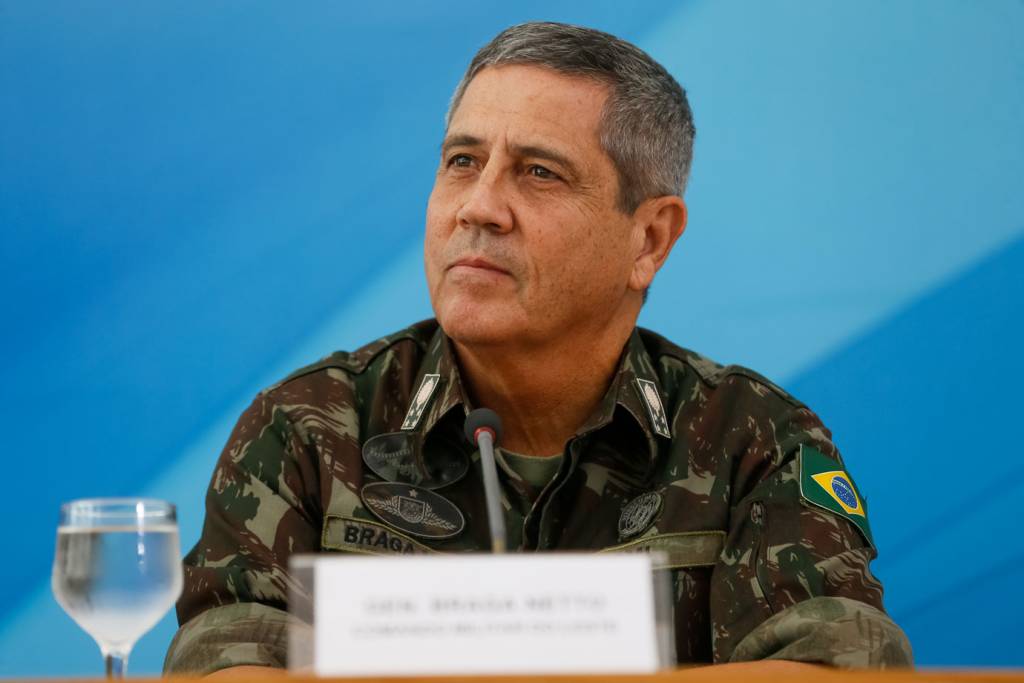RIO DE JANEIRO, BRAZIL – President Jair Bolsonaro delegated to the President’s Chief of Staff, Walter Braga Netto, the execution of a plan for economic recovery based on the restart of public works with Treasury funds, as a means to prevent an escalation in unemployment.
Dubbed the “Marshall Plan”, in reference to the US post-World War II Allied countries’ recovery program, it is expected to run for at least three years.
In the scope of the Ministry of Infrastructure alone, the package is projected to use approximately R$30 billion in public investments for the restart of some 70 works that are now either halted or below their total capacity.

Details on the package were introduced on Wednesday, April 22nd, at a meeting of President Jair Bolsonaro with his cabinet. The proposal is still being drafted in the Planalto, but the assessment that public works will be required is strongly supported by the government’s military core.
According to reports, during the cabinet meeting, it was considered that the crisis caused by the coronavirus pandemic will extend until next year, and that rethinking the current fiscal adjustment policy will be required. The Ministry of Infrastructure believes that the works could absorb between 500,000 and 1 million employees over the next three years.
Infrastructure Minister Tarcísio de Freitas said the list of works includes projects that could be quickly made viable due to the fact that they have feasibility projects and environmental licensing ready.
According to Tarcísio, the concessions and privatization program, which will also be given special consideration in order to unlock investments, will not yield the desired return in the short term.
The reason lies in the fact that the period between signing the contracts, carrying out the investment and hiring labor is typically one year on average.
In addition to the Ministry of Infrastructure, the Chief of Staff has established other “work fronts”, as each Ministry involved in this major recovery project calls it. The main measures in preparation are in the Ministries of Regional Development and Mining and Energy.
The Ministry of Regional Development has assessed housing and sanitation projects that can be quickly implemented, in addition to works on reservoirs.
Among the measures to be implemented will be the financing of works on Minha Casa, Minha Vida (My Home, My Life), entirely funded by the FGTS (Severance Indemnity Fund).
By late last year, the federal government was contributing ten percent of the resources. Given the scarcity of cash resources, the FGTS will be in a position to pay for the entire project and provide a cash outflow for the works.
There was approximately R$70 billion pledged in the FGTS due to the lack of counterparts from the Federal Government, which from now on can be invested in housing, and this will revert into construction jobs.
However, the economic team disagrees with the increase in public spending. The Minister of Economy Paulo Guedes intends to boost economic activity by granting credit and seeking market outlets to solve the deadlock using guarantees, so that companies of all sizes can access public and private banking institutions in search of credit lines.
Recently, the Central Bank has reduced the compulsory deposit requirement of banks (part of each bank’s cash reserves is retained at the Central Bank) as a means of providing even more liquidity for new loans.
However, government officials believe that Guedes’ proposal will not be able to create jobs in the short term, something deemed essential to mitigate the impacts of the economic crisis generated by the novel coronavirus.
The government estimates that the crisis, the impact of which has been underestimated, has already taken up more than R$800 billion (half after taking into account the fiscal impact) with emergency actions that will not get the economy to climb out of the quagmire.
Absent encouragement in production, Brazil will reach 2021 with the same level of economic activity and a debt close to 100 percent of GDP.
Source: Folhapress

